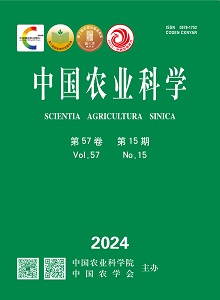The Effect of Biochar Applied Alone and in Combination with Mineral and Organic Fertilisers on the Yield of White Cabbage and Soil Properties
引用次数: 0
Abstract
The study aimed to investigate the effectiveness of biochar application on fertile soils in a temperate climate during the first year of application. The field trial was conducted on a nutrient-rich silt loam soil at two experimental sites in north-eastern Slovenia (Biš and Skorba). The effect of biochar applied alone or in combination with compost or mineral fertiliser on soil properties and yield of white cabbage was studied. In addition to the control (C), the soil received five treatments including biochar (B; 1.5 t/ha), compost (CO; 1.5 t/ha), biochar-mixed compost (BCO; 3.0 t/ha), standard mineral fertilisers (NPK; NPK 0.35 t/ha, potassium sulphate 0.25 t/ha and calcium ammonium nitrate 0.25 t/ha) and combined application of half the amountof NPK and BCO (NPK+BCO). The results showed that the applied treatments had no significant influence on the measured soil chemical parameters, except for the amount of total organic carbon, electrical conductivity and pH in Biš and total carbon in Skorba. All investigated parameters (cabbage head weight, head circumference, total and market yield) were higher at the experimental site Skorba. Statistically significant differences were found only at the experimental site Biš, where the treatment influenced all parameters (p < 0.01), except for the head circumference of the cabbage. The NPK and NPK+BCO treatments produced significantly higher total yields (66.7 t/ha and 65.8 t/ha, respectively) and marketable yields (53.2 t/ha and 51.8 t/ha, respectively) compared to the other treatments (41.3-52.6 t/ha and 30.5-42.4 t/ha, respectively). Although the differences between the other treatments were insignificant, a trend of decreasing cabbage yields towards CO > BCO > B was observed. Similar results were also obtained when analysing the average data of the two experimental sites.生物炭单独施用及与矿肥、有机肥配施对大白菜产量及土壤性状的影响
本研究旨在探讨在温带气候条件下施用生物炭第一年在肥沃土壤上的有效性。田间试验是在斯洛文尼亚东北部两个试验点(比什和斯科尔巴)的营养丰富的粉砂壤土上进行的。研究了生物炭单独施用或与堆肥、矿物肥配施对大白菜土壤性状和产量的影响。除对照(C)外,土壤还进行了生物炭(B)处理;1.5吨/公顷),堆肥(CO;1.5吨/公顷),生物炭混合堆肥(BCO;3.0 t/ha),标准矿物肥料(NPK;氮磷钾0.35 t/ha,硫酸钾0.25 t/ha,硝酸钙0.25 t/ha),氮磷钾和BCO (NPK+BCO)配施量的一半。结果表明:除比什比什的总有机碳、电导率、pH和斯科尔巴的总碳外,施用处理对土壤化学参数的影响不显著。白菜头重、头围、总产量和市场产量均在试验地Skorba较高。统计学上有显著差异的只有实验地点比斯,治疗影响了所有参数(p <0.01),除了白菜的头围。氮磷钾和氮磷钾+BCO处理的总产量(分别为66.7 t/ha和65.8 t/ha)和可售产量(分别为53.2 t/ha和51.8 t/ha)显著高于其他处理(分别为41.3-52.6 t/ha和30.5-42.4 t/ha)。虽然其他处理间的差异不显著,但CO和gt对白菜产量的降低趋势明显;BCO祝辞B被观察到。对两个试验点的平均数据进行分析,也得到了类似的结果。
本文章由计算机程序翻译,如有差异,请以英文原文为准。
求助全文
约1分钟内获得全文
求助全文
来源期刊

中国农业科学
Agricultural and Biological Sciences-Agricultural and Biological Sciences (all)
CiteScore
1.90
自引率
0.00%
发文量
17516
期刊介绍:
Chinese Agricultural Science is a comprehensive, academic journal co-sponsored by the Chinese Academy of Agricultural Sciences and the Chinese Society of Agriculture. Founded in 1960, the journal is published publicly in the form of a bimonthly magazine. The contents of the journal include crop genetic breeding, cultivation, plant protection, soil fertiliser, horticulture, food science and engineering, animal husbandry and veterinary medicine, etc. It aims to promote the sustainable development of high-yield, high-quality, high-efficiency and environmentally friendly agriculture and animal husbandry.
The aim of the journal is to report on the scientific research results of agriculture and animal husbandry in China, to enhance the innovation capacity of agricultural science and technology, to promote academic exchanges at home and abroad, and to serve the development of modern agricultural science and technology and scientific and technological progress. In addition, Chinese Agricultural Science is included in several international retrieval systems, including American Chemical Abstracts CA, Scopus, GeoBase, Russian Journal of Abstracts, CABI (Centre for Agricultural and Biological Information International) of the United Kingdom, and AGRIS (Food and Agriculture Organization of the United Nations).
 求助内容:
求助内容: 应助结果提醒方式:
应助结果提醒方式:


